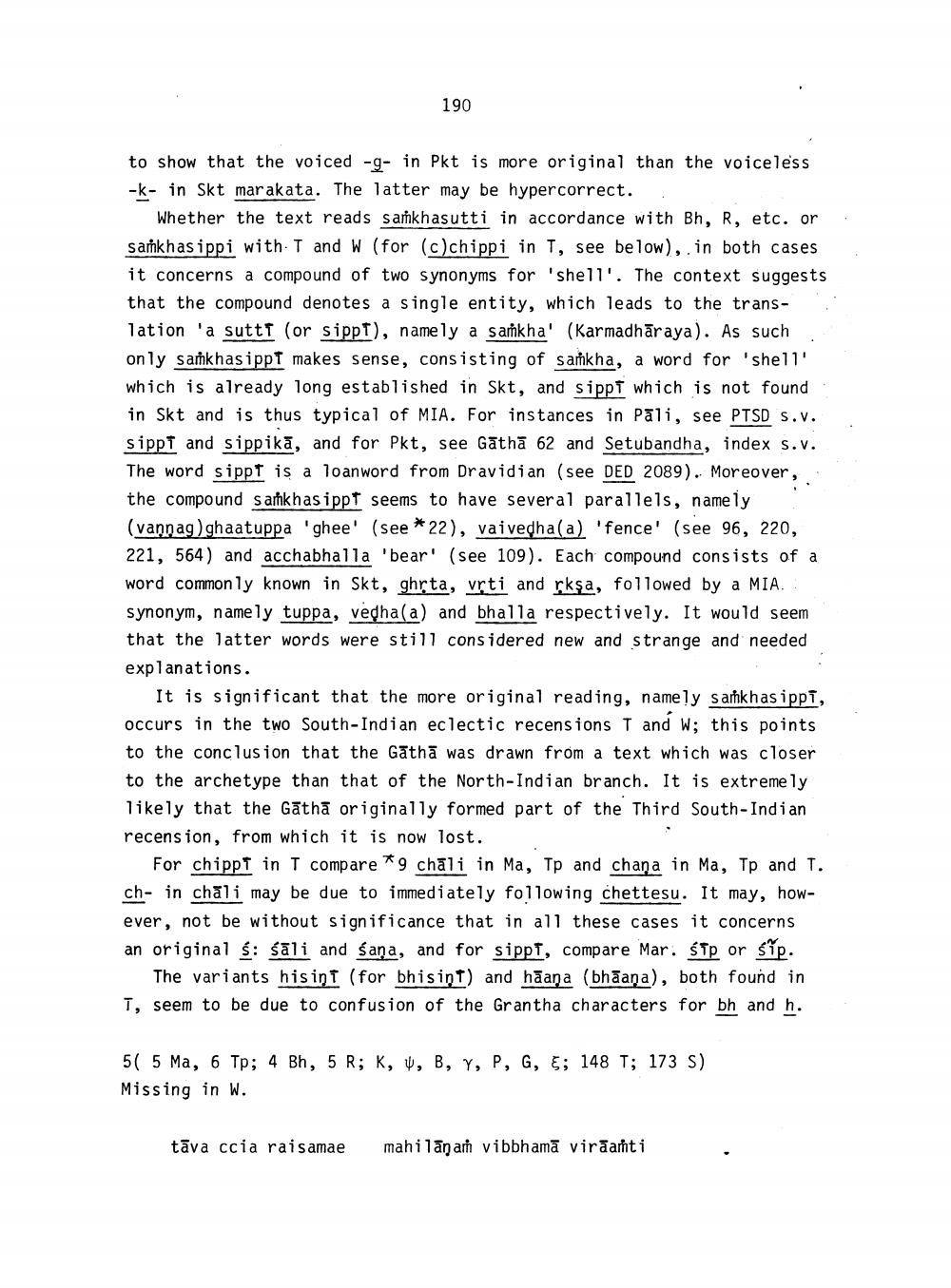________________
190
to show that the voiced -g- in Pkt is more original than the voiceless -k- in Skt marakata. The latter may be hypercorrect.
Whether the text reads samkhasutti in accordance with Bh, R, etc. or sankhas ippi with. T and W (for (c)chippi in T, see below), in both cases it concerns a compound of two synonyms for 'shell'. The context suggests that the compound denotes a single entity, which leads to the translation 'a suttt (or sippt), namely a sarkha' (Karmadhāraya). As such only samkhasippt makes sense, consisting of saikha, a word for 'shell' which is already long established in Skt, and sippt which is not found in Skt and is thus typical of MIA. For instances in Pāli, see PTSD s.v. sippt and sippikā, and for Pkt, see Gathā 62 and Setubandha, index s.v. The word sippt is a loanword from Dravidian (see DED 2089). Moreover, the compound sak hasippt seems to have several parallels, namely (vannag)ghaatuppa 'ghee' (see *22), vaivedha(a) 'fence' (see 96, 220, 221, 564) and acchabhalla 'bear' (see 109). Each compound consists of a word commonly known in Skt, ghrta, vrti and rksa, followed by a MIA. synonym, namely tuppa, vedha(a) and bhalla respectively. It would seem that the latter words were still considered new and strange and needed explanations.
It is significant that the more original reading, namely saikhasippi, occurs in the two South-Indian eclectic recensions T and W; this points to the conclusion that the Gathā was drawn from a text which was closer to the archetype than that of the North-Indian branch. It is extremely likely that the Gathā originally formed part of the Third South-Indian recension, from which it is now lost.
For chippt in T compare *9 chāli in Ma, Tp and chana in Ma, Tp and T. ch- in chali may be due to immediately following chettesu. It may, however, not be without significance that in all these cases it concerns an original ś: śāli and sana, and for sippt, compare Mar. stp or sip.
The variants hisiņi (for bhisiņt) and hāaņa (bhāaņa), both found in T, seem to be due to confusion of the Grantha characters for bh and h.
5( 5 Ma, 6 Tp; 4 Bh, 5R; K, , B, Y, P, G, 5; 148 T; 173 S) Missing in W.
tāva ccia raisamae
mahilāņa vibbh amā viraati




